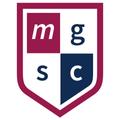Sociology

Unit 1: Youth and family
In this unit, students will be encouraged to question their assumptions, reflect on their current understanding and grow their ideas about human society. Students will use sociological methodology to explore the social categories of youth and adolescence and the social institution of family.
On completion of this unit students should be able to:
- Explore the way youth and adolescence are constructed as social categories, and examine a range of factors that lead to different experiences of youth
- Examine the tension between a need to define categories of youth and adolescence, and the negative impacts of categorisation and stereotyping
- Investigate the social institution of the family, drawing on a range of theoretical approaches to explain the purpose and experiences of family life
Unit 2: Social norms: breaking the code
In this unit, students will explore the concepts of deviance and crime, including types and degrees of rule breaking behaviour and why people might engage in these activities.
On completion of this unit students should be able to:
- Explore the concept of deviance by investigating the functionalist, interactionist and social control theories of deviance
- Investigate crime and punishment by exploring patterns of crime and considering a range of factors such as class, gender, age and race/ethnicity
Unit 3: Culture and ethnicity
In this unit, students explore the experiences and expressions of culture and ethnicity within Australian society in two different contexts – Australian Indigenous culture and ethnicity in relation to migrant groups.
On completion of this unit students should be able to:
- Explore the historical suppression of Australian Indigenous culture and its influence on subsequent generations. They will analyse and evaluate changes in public awareness and views of Australian Indigenous culture.
- Develop an understanding of the supports and barriers that need to be considered when investigating experiences of ethnic identity and how individuals define themselves based on common heritage, language or religion.
Unit 4: Community, social movements and social change
In this unit students explore the ways sociologists have thought about the idea of community and how various forms of community are experienced.
On completion of this unit, students should be able to:
- Examine the changing definitions and experiences of community and the challenges posed by political, social, economic and technological change.
- Investigate the purpose, evolution, power and outcomes of social movements in their efforts to achieve social change.
